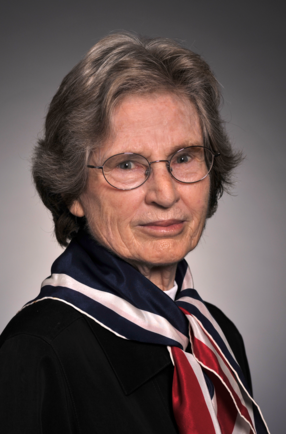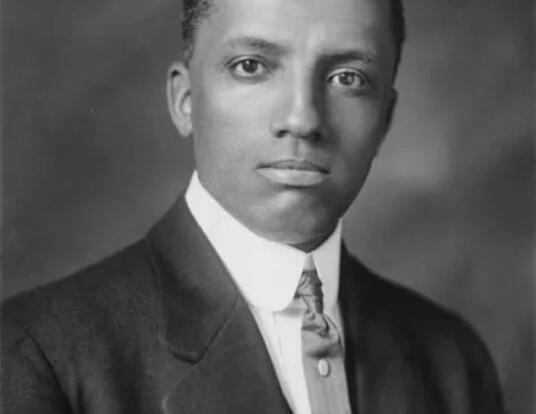Lotte Bailyn: 2021 Centennial Medal Citation
Many American workers experienced a sudden, unprecedented blending of work and home life during the COVID-19 pandemic: work from home became common practice, and as schools shifted to remote teaching, the demands of childcare expanded and intensified for parents and caregivers. As organizations across the country now contemplate the future of work after the pandemic subsides, there is no greater authority on the dynamics of the workplace and the family than Lotte Bailyn, T Wilson (1953) Professor of Management, Emerita, at the MIT Sloan School of Management. She has been overturning conventional assumptions about organizational behavior and productivity for decades, demonstrating that valuing employees’ lives outside of work actually leads to better business outcomes.

Born in Vienna, Bailyn grew up in New York City after her family fled the Nazi occupation of Austria in 1937. She earned her bachelor’s degree in mathematics from Swarthmore College in 1951 and her PhD in social psychology from the Radcliffe Graduate School in 1956, six years before Harvard’s Graduate School of Arts and Sciences would open to women. She worked as a researcher and lecturer for 16 years, raising two children, before becoming the first woman faculty member at MIT Sloan.
“Lotte is a tower of strength,” says Edgar Schein, PhD ’52, Society of Sloan Fellows Professor of Management, Emeritus, who worked closely with Bailyn throughout their careers at MIT. They first met as graduate students in what was then Harvard’s Department of Social Relations, an interdisciplinary program that combined social psychology, sociology, cultural anthropology, and clinical psychology. “She had her own identity and her own set of principles and never wavered one iota from them,” Schein observes. “She’s a true empirical scientist, and her influence at MIT was profound in part because it was so broad.”
Bailyn’s leadership extended well beyond Sloan: in 1997, she succeeded Larry Bacow as chair of the MIT faculty, overseeing the release of a consequential report on gender inequity in the School of Science. “The findings and open publication of the report was a watershed moment,” says John Van Maanen, Erwin H. Schell Professor of Management Emeritus, another close collaborator of Bailyn’s. “Not only did it draw widespread attention, but it led to concrete actions taken at MIT and across the country—and beyond—to address gender inequities and bias in academia and scientific professions. Such advocacy work has always been a characteristic of Lotte’s professional life.”
Bailyn’s scholarship has been similarly transformative. Her classic 1993 book Breaking the Mold: Women, Men, and Time in the New Corporate World, revised and republished in 2006 as Breaking the Mold: Redesigning Work for Productive and Satisfying Lives, argues that the corporate obsession with time—the assumption that the best employees are the ones who work the longest hours and are always available—is deeply misguided. Bailyn’s work demonstrates that organizations are most effective when people work together to meet business goals while taking into account personal needs outside of the office, embracing norms that make flexible work arrangements viable options for employees. According to Teresa Amabile, Baker Foundation Professor at Harvard Business School, who currently works with Bailyn on retirement-related research, “This book, in its own way, broke a mold—the standard way in which organizational behavior scholars viewed the workplace experience, as a sphere unto itself—by forcing all of us to simultaneously consider employees’ personal spheres, their home and family lives. Lotte came to that view not because it was a feminist fashion; she came to that view through painstaking empirical research and analysis.”
This research included a landmark project at Xerox, funded by the Ford Foundation, which explored whether workplace interventions could actually increase gender equity. Leslie Perlow, Konosuke Matsushita Professor of Leadership and senior associate dean for research at Harvard Business School, worked on this project as Bailyn’s graduate student. “We found that it was possible to create changes in workplaces that benefited and enhanced the effectiveness and productivity of the work and, at the same time, improved employees’ work-family integration,” Perlow says. “This was Lotte’s revolutionary insight to the field. What I learned from Lotte on this project—about how to observe, record, analyze, and synthesize data, as well as how to approach change in companies—has fundamentally shaped my work for my entire career.”
Bailyn has advised more than sixty doctoral students over the years, including Nitin Nohria, Harvard University Distinguished Service Professor and former dean of Harvard Business School. “Lotte is a remarkable scholar: one of a rare class of individuals who leaves a permanent imprint on the way you view and approach research and the processes that underlie it,” Nohria says. “She has fundamentally shaped generations of academics. True leadership is having an impact on others in powerful and enduring ways, and it is this that sets Lotte apart.”
Lotte Bailyn, for your profound insights into the synergy of work and home life, and for your lifelong analysis of—and advocacy for—norms and practices that value the personal lives of employees outside of work while helping organizations become more effective and competitive, we are proud to award you the 2021 Centennial Medal.
Get the Latest Updates
Join Our Newsletter
Subscribe to Colloquy Podcast
Simplecast





